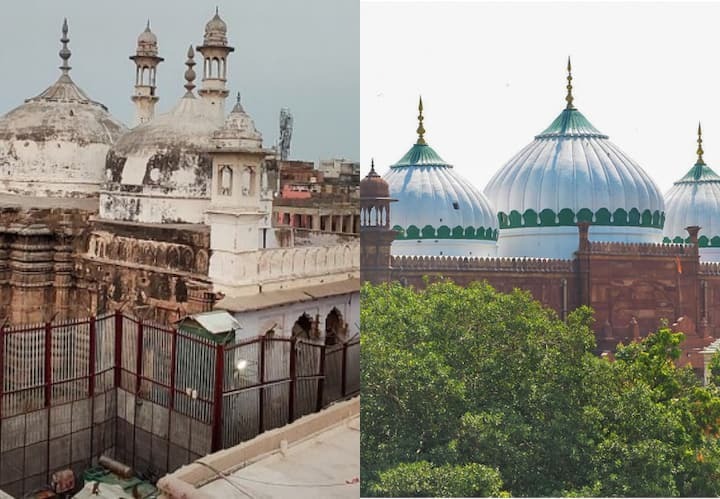
Historical Context: Ram Janmabhoomi Movement
To understand the present, we must revisit the past. The roots of the Gyanvapi-Kashi Vishwanath dispute lie in the fervor of the Ram Janmabhoomi movement. The Sangh Parivar, at the time, had pledged not to initiate agitations in Kashi and Mathura, promising a different approach.
Allahabad High Court’s Dismissal of Muslim Petitions: The recent dismissal of petitions by the Allahabad High Court, asserting that the Gyanvapi Mosque is not integral to the Kashi Vishwanath Temple, has set the stage for a renewed debate. This legal development is poised to cast a shadow over the upcoming elections, leaving us to ponder its political implications.
Impact on the 2024 Lok Sabha Elections: It’s evident that the Gyanvapi-Kashi Vishwanath dispute is not merely a legal battle; it’s a political game-changer. As we approach the 2024 Lok Sabha elections, the ripple effect of this case on the political landscape cannot be overlooked. The Sangh Parivar’s commitment to refrain from agitations in Kashi and Mathura is under scrutiny.
Sangh Parivar’s Pledge and its Significance: The Sangh Parivar’s promise during the Ram Janmabhoomi movement becomes a focal point. The commitment to avoid stirring controversies in Kashi and Mathura now hangs in the balance. Understanding the silence of the Sangh in the current scenario is crucial to decoding the unfolding political drama.
Varanasi Court’s 1991 Plea for Puja Rights: In 1991, Hindus filed a plea in the Varanasi court, seeking the right to perform puja at the disputed site. This historical context is vital to grasp the evolution of the dispute and the shifting sands of the political landscape.
Controversy Surrounding Gyanvapi Mosque: The controversy surrounding the Gyanvapi Mosque adds another layer to the narrative. Claimed by petitioners to be an integral part of the Kashi Vishwanath Temple, the mosque’s status is at the core of the legal battle. Examining the arguments of the petitioners sheds light on the intricacies of the case.
Arguments of Petitioners: Mosque as a Part of the Temple: Advocates for the petitioners argue that the Gyanvapi Mosque is an inseparable part of the Kashi Vishwanath Temple. Their claims rest on historical and religious grounds, challenging the established narrative.
Sangh’s Silence: Analyzing the Current Scenario: The Sangh Parivar’s current silence on the Gyanvapi-Kashi Vishwanath dispute raises questions. Analyzing the prevailing circumstances, experts opine on the potential political strategies at play and the reasons behind the Sangh’s reserved stance.
Political Influence of Ayodhya and Other Disputes: To predict the trajectory of the Gyanvapi-Kashi Vishwanath dispute, we must consider the political influence of past disputes, particularly the Ayodhya case. Understanding how such issues shape electoral outcomes is crucial in decoding the Sangh’s long-term strategy.
Future Projections: Sangh’s Plans and Strategies: The future of the Gyanvapi-Kashi Vishwanath dispute holds political significance. Projections into the Sangh’s plans and strategies provide a glimpse into how this issue might unfold and influence the political landscape.
The 1991 Ayodhya Campaign and its Role Today: Reflecting on the 1991 Ayodhya campaign and its resonance in today’s political climate reveals the lasting impact of historical events. How the Sangh Parivar navigates this complex terrain holds the key to understanding its role in shaping narratives.
Political Milestones: BJP’s Rise and the Sangh’s Role: Examining the political milestones, especially the rise of the BJP, sheds light on the Sangh Parivar’s role. How these entities collaborate or diverge shapes the narrative of the Gyanvapi-Kashi Vishwanath dispute.
In conclusion, the Gyanvapi Kashi Vishwanath Case emerges as more than a legal dispute; it’s a political phenomenon with far-reaching implications. As the country heads into the 2024 Lok Sabha elections, the impact of this case on political landscapes cannot be underestimated.